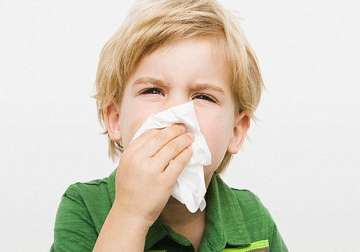London:The month in which you are born can determine whether or not you are more likely to suffer from an allergy in later life.
The time and date of birth determines our horoscope and the characteristics associated with it. A new study has discovered that a specific marker in our genes, which gives us the horoscope by the month of birth and shows how it influences so many things in our life.
The month in which a person is born influences a wide range of things: From risk of allergic disease, to height and lifespan, shows study.
But, relatively little is known about how a one-time exposure, such as the month of birth, could hold lasting effects.
“It might sound like a horoscope by the seasons, but now we have scientific evidence for how that horoscope could work.
Because month of birth influences so many things, the epigenetic marks discovered in this study could also potentially be the mechanism for other seasonally influenced diseases and traits too, not just allergy,” said lead author Gabrielle Lockett from University of Southampton in Britain.
The findings, published in the journal Allergy, revealed that particular epigenetic marks (specifically, DNA methylation) were associated with season of birth and still present 18 years later.
Also, this epigenetic marks exposed the link to allergic disease, for example people born in autumn had an increased risk of eczema compared to those born in spring.
“Epigenetic marks are attached onto DNA, and can influence gene expression (the process by which specific genes are activated to produce a required protein) for years, maybe even into the next generation,” explained one of the researchers John Holloway, professor at Southampton University.
While these results have clinical implications in mediating against allergy risk, we are not advising altering pregnancy timing,” Holloway added.
The research team conducted epigenetic scanning on DNA samples from a group of people born on the Isle of Wight in Britain and the results were validated in a cohort of Dutch children.
(With IANS Inputs)
